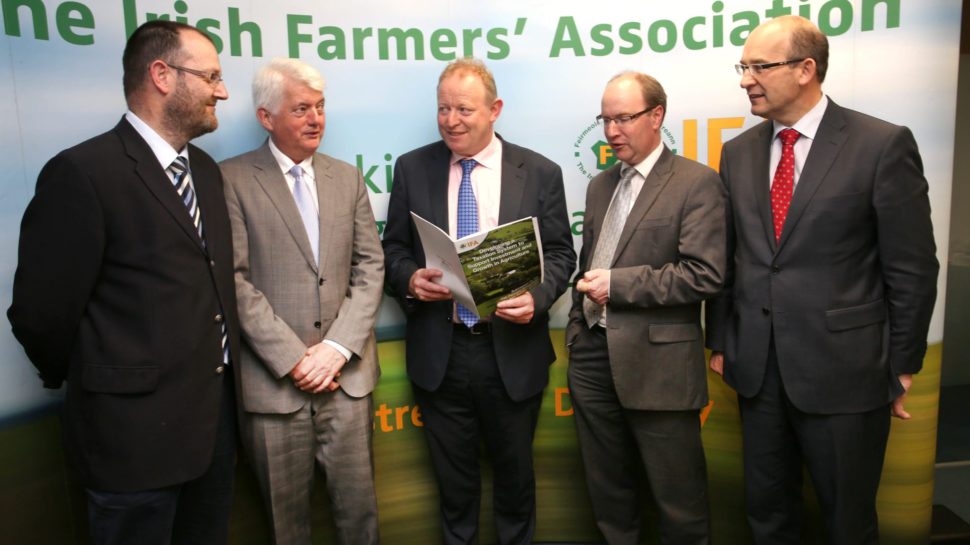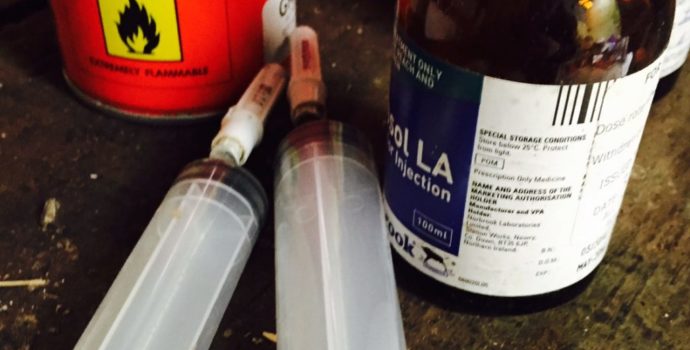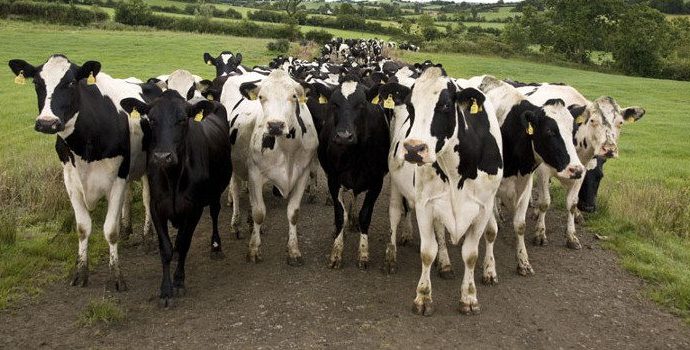IFA Seeks Support of Agri-sector for Tax Review Proposals

Speaking today (Tues) at the IFA briefing to representatives of the Irish dairy industry on the Association’s Agri-Tax Review proposals, IFA President Eddie Downey said that a supportive taxation system is critical to underpin the sizeable on-farm and industry investment required to deliver on the Food Harvest 2020 targets and to deal with the increasing volatility in farmer incomes due to price and weather extremes.
Mr Downey added that he hoped to secure the support of the whole agri-sector for the IFA taxation proposals, and the dairy briefing was the first in a series which will involve other sectors.
“In response to the announced Review, IFA established a Farm Taxation Project Team chaired by myself, including members of the IFA Farm Business Committee,” Mr Downey said.
“After consultation with the main commodity committees and with the support of independent taxation experts, the Project Team made a detailed submission articulated around three main priorities: to maintain hard won and necessary existing reliefs, to secure new incentives to drive land mobility and investment and to examine how the taxation system can better accommodate the extreme volatility in farm incomes,” he added.
“To tackle volatility in farm income, we have proposed a scheme which would allow a farmer place on deposit a portion of their pre-tax income in a designated commercial farming account. To encourage lifetime farm transfers, the Phased Transfer Partnership would provide a defined, phased transfer of the family farm over a set time period. As an incentive to the farm holder, our proposals suggest that they would receive tax relief similar to that applying to long term leasing of land. Our aim is, through an improved taxation regime, to foster growth and investment in farming and agri-business,” he said.
Chairing the session, IFA National Dairy Committee Chairman Sean O’Leary added: “In the context of the €1.5m on farm investment farmers will have to make to expand milk production, and in light of the fact that a significant portion of the €400m investment required in processing will come from farmer resources, the taxation regime can and must play its full part in supporting this productive investment”.
“Many of our proposals are directly or indirectly relevant to the growing dairy sector. Indeed, some of our proposals were developed in co-operation with representatives from the dairy industry in the last couple of years.”
“This includes a proposal to reduce the cost to farmers of the mandatory contributions built into some of their co-ops’ development plans, by allowing farmers to treat it as a qualifying capital expenditure in the tax system,” he said.
“In addition, IFA has proposed that the Employment and Investment Incentive (EII) should be amended to facilitate the particular size and structure of the dairy industry, through support for a tax-relieved loan scheme. This will provide an opportunity for investors and the Government to support domestic enterprise, with a resulting increase in economic activity and sustainable job creation across Ireland,” he added.
“Our aim following from today is to agree a strategy with the dairy industry, co-operatives, the Irish Dairy Board and ICOS, to work jointly to progress our proposals with the Departments of Finance and Agriculture,” he concluded.




